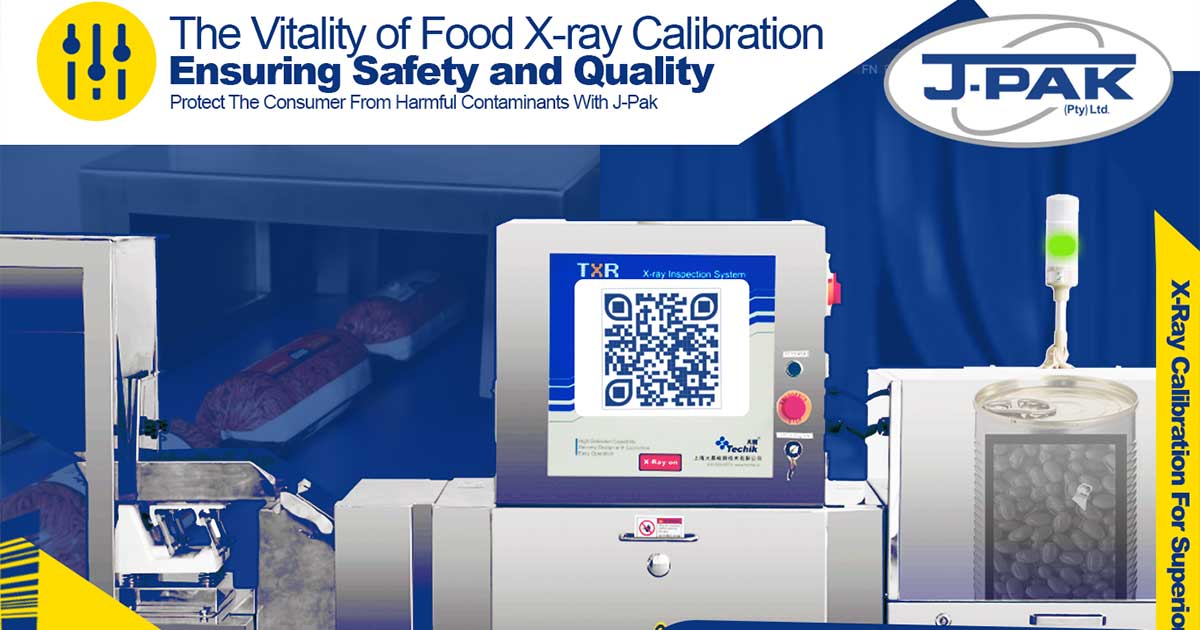
The Vitality of Food X-ray Calibration: Ensuring Safety and Quality
In an era where food safety and quality are paramount, the use of advanced technologies has become crucial. One such technology is food x-ray inspection, which plays a significant role in safeguarding consumer health and maintaining the integrity of the food supply chain. However, the effectiveness and reliability of x-ray inspection systems heavily rely on accurate calibration. This article delves into the importance of food x-ray calibration and its impact on ensuring food safety and quality.
The Significance of X-ray Inspection in Food Industry
X-ray inspection is a widely adopted method in the food industry to detect foreign objects, such as metal, glass, or plastic, in food products. By utilizing x-ray technology, manufacturers can identify contaminants at various stages of production, including raw materials, packaging, and finished products. This non-destructive method not only enhances consumer safety but also helps prevent costly product recalls, potential legal liabilities, and damage to brand reputation.
Understanding Calibration in Food X-ray Inspection
Calibration is the process of adjusting and verifying the accuracy of an x-ray inspection system to ensure it functions optimally. It involves comparing the system’s measurements against a known standard to detect and correct any deviations. Calibration not only includes setting the correct energy levels but also encompasses parameters such as contrast, sensitivity, resolution, and spatial accuracy.
Importance of Calibration in Food X-ray Inspection
Accurate Detection: Calibrating an x-ray inspection system ensures accurate detection of contaminants, even at small sizes. Regular calibration enables the system to identify foreign objects reliably, preventing their presence in the final product.
Consistency: Calibration ensures consistency in the performance of the x-ray inspection system over time. As components and settings may drift or change due to various factors, calibration guarantees that the system continues to operate at the desired level of accuracy.
Compliance with Regulations: Food safety regulations and industry standards, such as Hazard Analysis and Critical Control Points (HACCP) and Good Manufacturing Practices (GMP), require regular calibration of x-ray inspection systems. Compliance with these regulations is essential for manufacturers to demonstrate their commitment to producing safe and high-quality food products.
Cost-effective Operations: Properly calibrated x-ray inspection systems minimize false rejects and false accepts, reducing the need for additional manual inspections or rework. This leads to cost savings and increased productivity, as the system performs optimally without compromising efficiency.
Brand Protection: Calibration plays a pivotal role in protecting a company’s brand reputation. By ensuring the detection of contaminants and preventing their presence in products, manufacturers can maintain consumer trust, loyalty, and confidence in their brand.
Continuous Improvement: Calibration provides an opportunity for ongoing system assessment and improvement. By monitoring performance through regular calibration, manufacturers can identify any trends or anomalies that may require corrective actions or adjustments, leading to enhanced overall efficiency.
Conclusion
In a world where food safety and quality are critical, the importance of food x-ray calibration cannot be overstated. Accurate calibration of x-ray inspection systems ensures reliable detection of contaminants, compliance with regulations, cost-effective operations, and brand protection. By prioritizing calibration, food manufacturers can uphold consumer safety, prevent recalls, and preserve their reputation, ultimately contributing to a safer and more reliable food supply chain. Request a quote from J-Pak Today.

